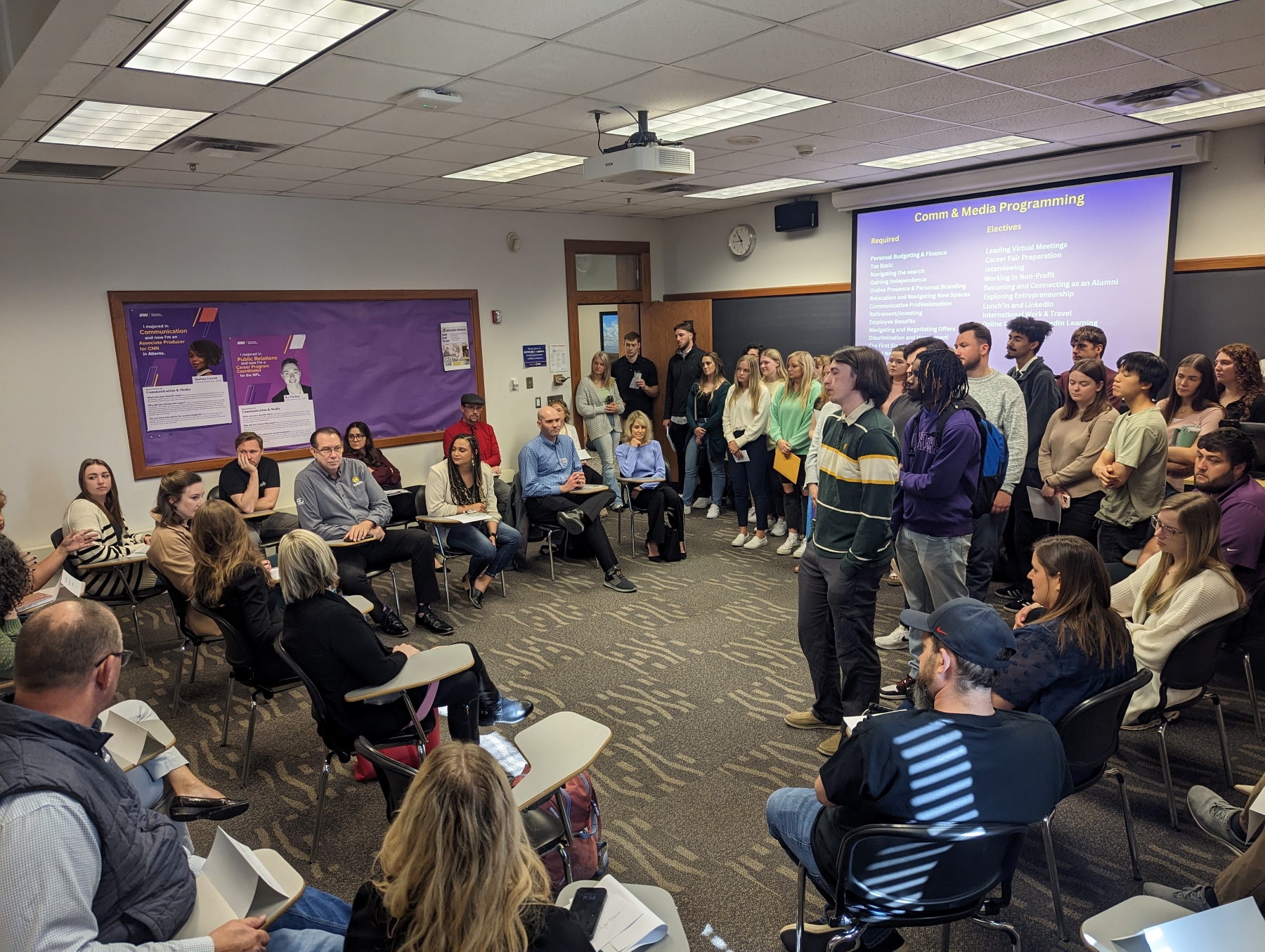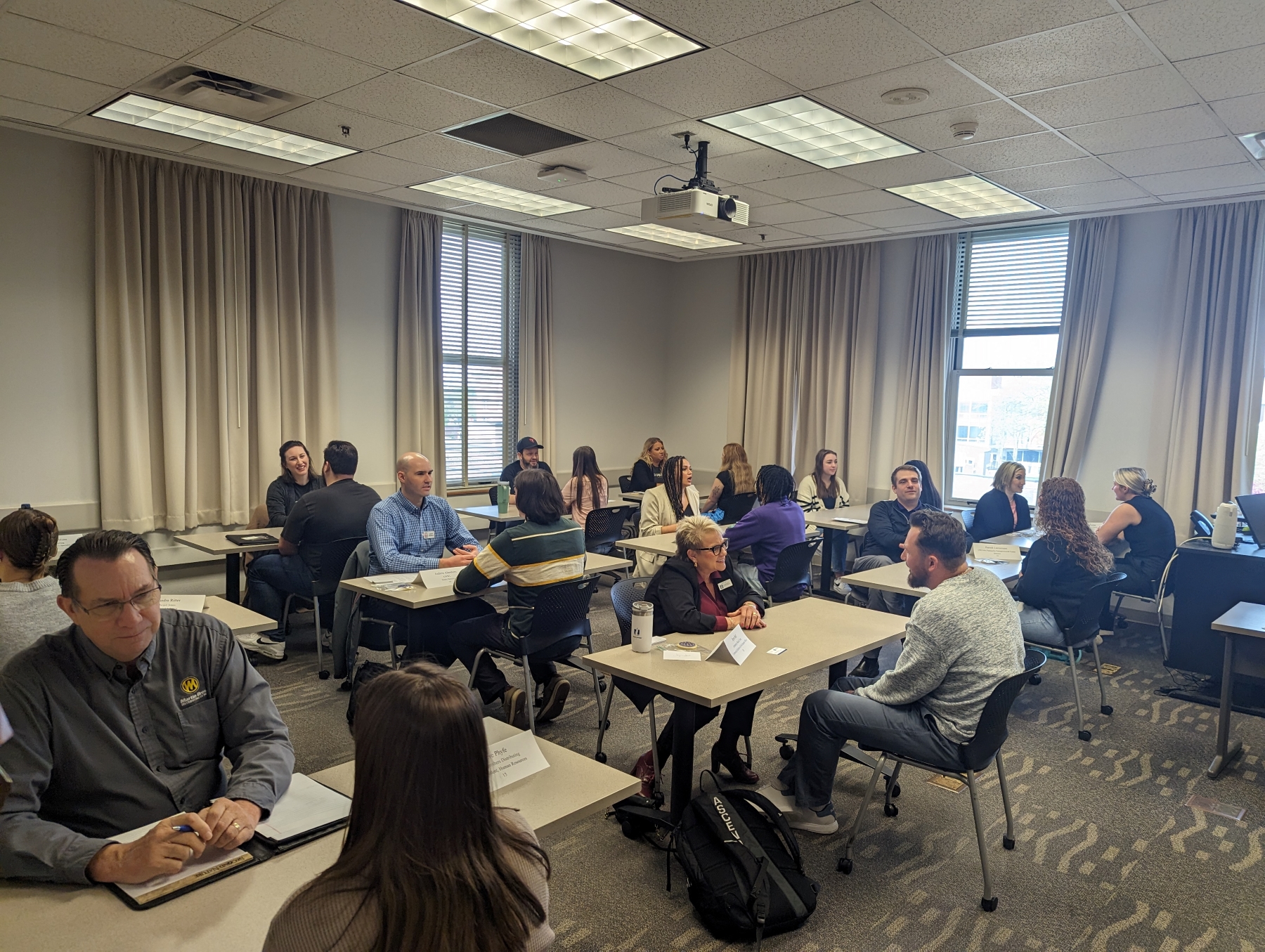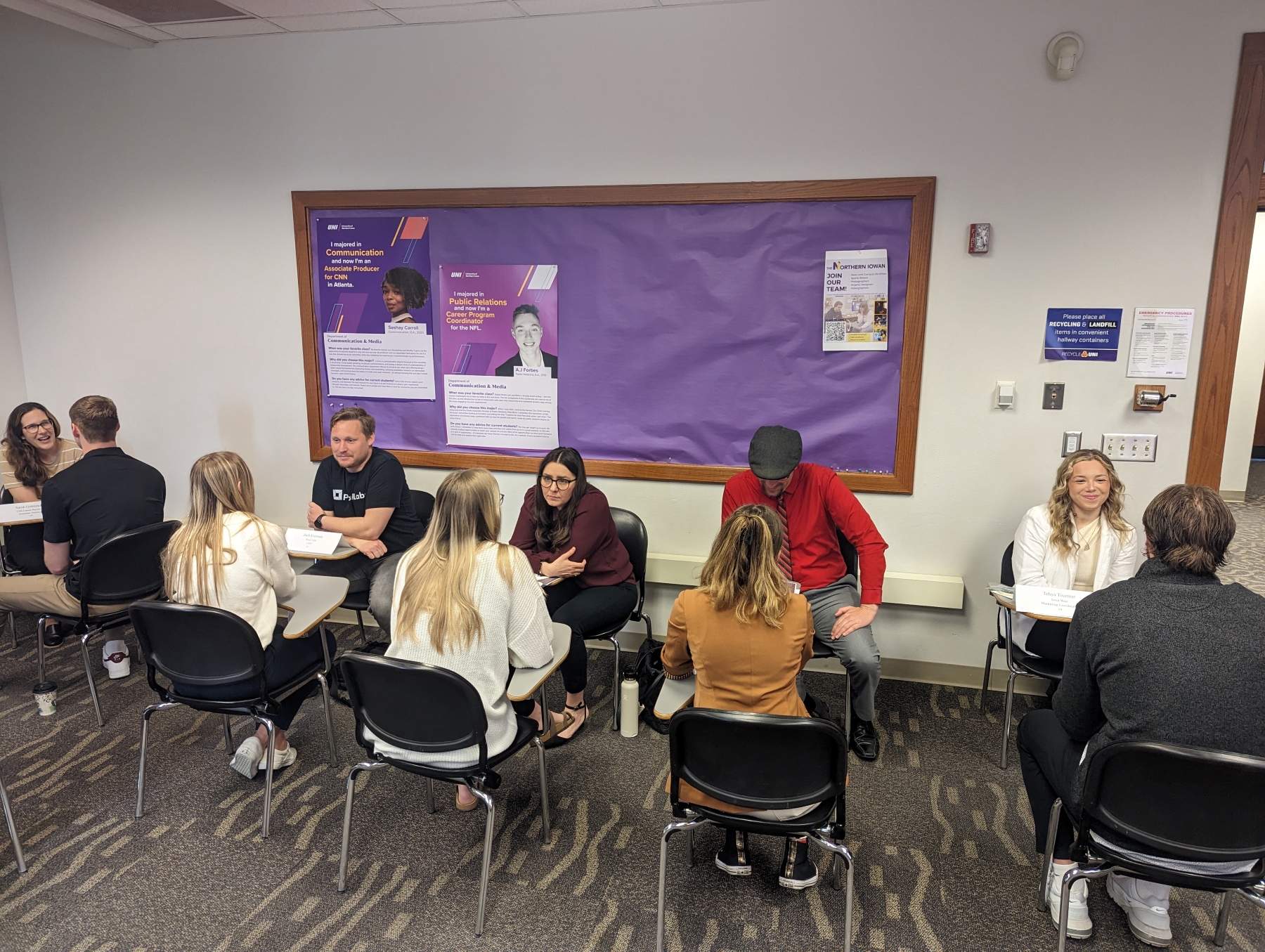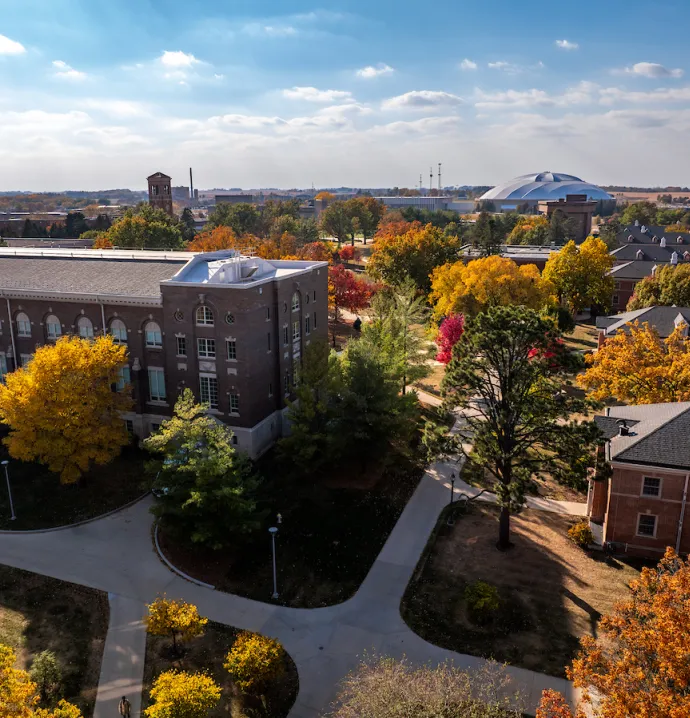UNI professor provides students “Next Step” into the real world
UNI professor provides students “Next Step” into the real world

The transition to life after college can be intimidating for new graduates, filled with new experiences like job hunting, salary negotiations, insurance and saving for retirement, all while navigating a newfound level of independence. Most graduates entering the “real world” are left to figure out these things on their own… until now.
Assistant Professor of Instruction Nikki Harken is changing that for students at UNI through the Next Step Program.
“I just want students to know that we care about them as much on the way out, as we cared about them on the way in,” said Harken. “I want them to leave here feeling like we did all we could do to make the transition to that next step go as smoothly as possible.”
Toward the end of their time at UNI, communication and media students who are completing an internship meet once a week to hear from Harken and guest speakers on topics that will prepare them for life after college. Students learn about everything from the logistics of relocating for a job to filing their own taxes for the first time. Seeing its impact, the university is exploring expanding the program beyond the department.
Harken has looked for similar programs at other colleges and universities. Although she says there are pockets of education on these topics, she has yet to come across a similar coordinated effort. UNI is ahead of the game in this area. Other efforts include a successful Professional Readiness Program in the Wilson College of Business, which equips business students with soft skills before they graduate.
“The thing that I think is really important about this program is we don't go too in-depth, but we sort of do a cursory review of all of these things,” said Harken. “So, what are the five to seven most important things about retirement that someone should know when they're graduated from college?”

Creating the Next Step Program was personal for Harken, who was a first-generation college student. After her older brother graduated from college, he chose a career on the family farm. So when Harken graduated from UNI with her undergraduate degree and entered the workforce, she didn’t have a close family member to advise her about life in corporate America. This was her first inkling of the need college students have for guidance about their next step following graduation.
Years later, Harken entered higher education. She noticed trends among her former students. While they often felt prepared to do their jobs, they were surprised about how challenging other aspects of the transition were. They didn’t know how to navigate choosing an insurance plan or saving for retirement.
“I feel responsible because I'm a teacher and I'm human, and I want our students to transition out of here in really great ways and live full lives — not just in their career, but socially and financially, I want them to have that success,” she said. “So when I saw that while they were having that career success, these other areas of their life were causing issues, I wanted to help.”
The program started slowly with a few workshops being offered here and there. Gradually, staff from across campus became involved. The Office of Financial Aid and Scholarships, Career Services and Human Resource Services all helped for the good of students.
“What I think is really valuable about this program is that it crosses all the invisible boundaries that we have at universities,” said Harken. “We cross departments. So I have a faculty member from the Wilson College of Business coming to do taxes. We cross divisions. I have folks from Student Affairs coming to lead workshops. We work with the Alumni Association. We work with community volunteers. This program brings together all of these entities who care about young people.”
Paige Beck, who just graduated with a degree in public relations with an emphasis in strategic PR and minors in interactive digital studies and digital journalism, is grateful for the Next Step class and the way it has increased her confidence about entering the workforce.
“Nikki’s class has given me that next step after graduation, and I feel more prepared to do some of the adult things like taxes,” she said. “We've talked about so many different things that might otherwise scare me, but I feel a lot more prepared after taking this class.”
Bennett Ludwig, who graduated this spring with a degree in digital media journalism and a digital media production minor, agrees that the program has been worth the time and homework.
“Before I took the Next Step Program, I felt a little bit confident about heading into the real world after I graduate college, but after taking that class, I’m really ready for it now because I have all the skills I learned and now I know I can do more things on my own,” he said.

When thinking about life after college, Beck was the most nervous about making friends. She said that most of the guest speakers in Harken’s program touched on this topic and encouraged the students to get involved within their communities to combat loneliness and make new friends. Beck also believes that being in the program was a good way to meet people in Cedar Falls, and she always connected with guest speakers on LinkedIn.
“I think that Nikki's class does a really great job of breaking it down into different sections,” she said. “Just learning and educating yourself little by little is really helpful, and having this class all semester long makes it feel less overwhelming. I don't dread going into class and learning about these things because she gets such great speakers, and they are very understanding that we don't know about this stuff.”
For Ludwig, one of the most helpful sessions was learning how to build a personal budget. He also enjoyed learning about how to polish his online presence for prospective employers and has already applied the tips he’s learned to his LinkedIn profile.
“We had an entire session about online presence and how to look professional online, and I hadn’t really thought about that before,” he said. “Nikki says that if you have a great online presence, more employers are more likely to hire you.”
Perhaps one of the most critical sessions in the program is about navigating and negotiating a job offer. Harken provides a helpful guide for how students can negotiate for better pay, benefits and an overall better compensation package. Harken says alumni of the program have told her the first thing they do when they get a job offer is look at her materials. Some of these alumni can boast successfully negotiating for better offers.
There is a demand for Harken’s work. After being named a winner of the Intellectual Property and Innovation Disclosure Competition II, she used the award to create a nationwide survey of more than 4,000 college students, asking them if they would participate in such a program. The results overwhelmingly showed there was interest.
In the last two years, the program has become a formal part of the internship program for hundreds of communication and media students. Whenever Harken is approached with a new opportunity, she said she always asks herself, “Is this good for students?” With the Next Step Program, the answer is obvious.




